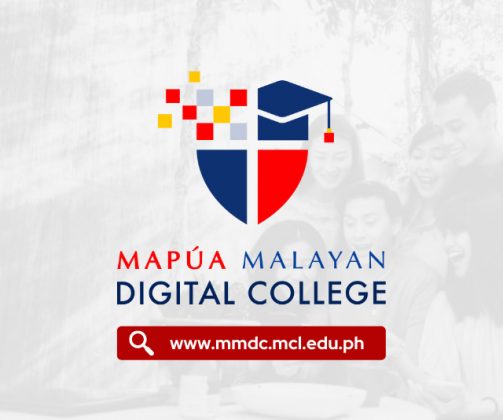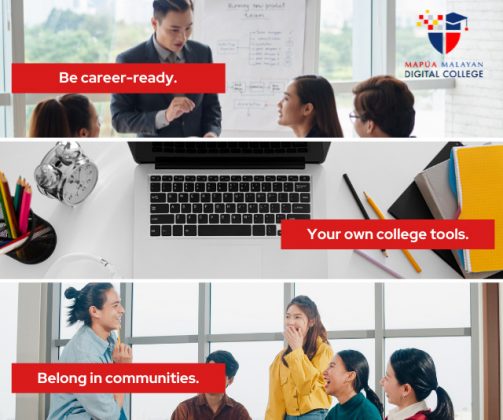Mapúa unveils new college with ‘digital-first’ learning models
By Bronte H. Lacsamana
As a way to reimagine higher education in a post-pandemic, more digital-savvy context, Mapúa University launched on Feb. 2 the Mapúa Malayan Digital College (MMDC), a “digital-first” school under Malayan Colleges Laguna.
What sets this college apart are its learning models which have been structured around projects, problems, and cases (PPC) with real-world applications rather than traditional tests, according to MMDC’s chief learning officer Derrick Latreille.
“A professor’s role is typically to explain stuff, but what we’re doing is, we’re making all that information on-demand. This frees the professor to move from providing information to facilitating experience,” he said at the virtual launch on Wednesday.
“This allows them to upgrade what they’re doing, to change their approach with the students and really engage with them in a deeper way,” he said.
MMDC will open this school year 2022-2023, offering courses in information technology (IT) and business administration (BA). Specializations in IT include data analytics, software development, and network and cybersecurity. Specializations in BA include marketing management, operations management, and human resource management.
Instead of costing over P100,000 a year like most private colleges, tuition at the college could cost as low as P58,000 a year, said Mr. Latreille.
MMDC-commissioned surveys conducted by Acumen, Insight Asia, andTheNerve informed the college’s “digital-first” direction. Results showed available courses, tuition fees, school reputation, community, and opportunities for socialization ranked high.
The PPC models are anchored on a cutting-edge online learning management system (LMS), a student-centered information system, and offline experiences guided by Mapúa’s partners in the industry, said Dennis H. Tablante, executive director of MMDC.
“We make sure our graduates are employable. We’re clear from the very beginning what set of behaviors and skills our students must have,” he explained. “Students can expect experts from the field to guide them as well.”
FLEXIBILITY, EMPLOYABILITY
Learning Hubs, which are spaces where students can meet and work on projects and organize clubs, provide the offline side of the college experience. The two hubs are in Ayala Malls’ Capitol Central in Bacolod and Ayala Malls’ Cloverleaf in Quezon City.
Aside from this, MMDC will provide each student with a laptop and pocket wi-fi, with required class meeting times clocking in at just 7.5 hours a week of synchronous learning. This allows them to be flexible depending on their respective schedules and situations.
“There’s actually more to the [LMS] applications because the faculty member and assistants can group students but at the same time listen in on the conversations that are happening,” said Jonathan Dayao, MMDC’s senior director of administration.
“There are certain features where the faculty member or assistants can detect the level of engagement within groups,” he said.
As for real-world experience, the PPC model will culminate with internships and on-the-job training in the students’ final term.
Philip A. Gioca, country manager of JobStreet Philippines, explained at the virtual launch that IT and business courses are “future-proof” because graduates from these courses tend to be the in-demand talents that companies need.
He added that there should be “a balance between core skills and practical skills like communication,” especially with the hybrid set-up being touted as the future of work.
“It’s important to marry the digital, technical aspect, and the soft skills aspect,” he said.
MMDC is now accepting BS Information Technology and BS Business Administration freshmen for school year 2022-2023, which begins in August.
It offers a scholarship where the first 750 enrolled students can get a discount of up to P20,000 on tuition. Slot reservation starts on March 1.





